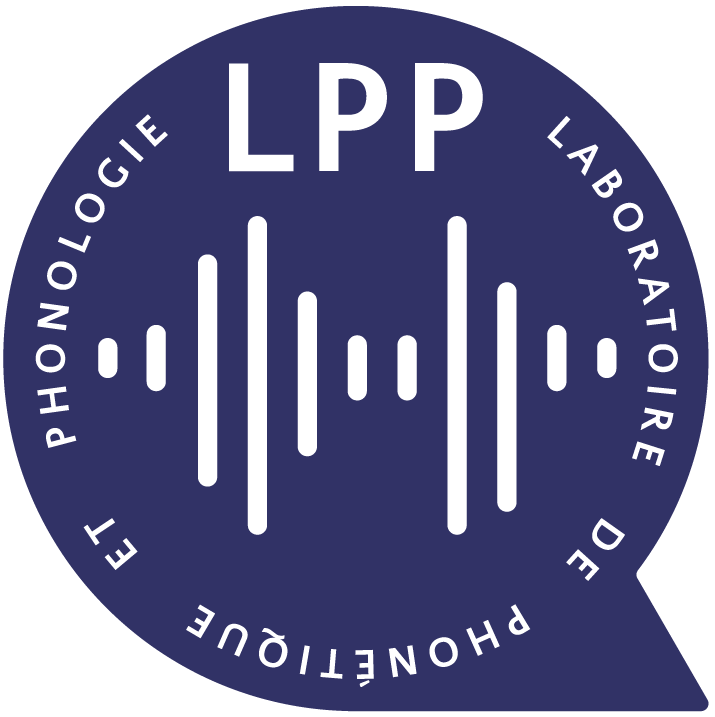Words are often reduced (e.g., the English word /jɛʃeɪ/ for /jɛstədeɪ/ yesterday). Native
listeners generally understand reduced forms effortlessly. Non-native listeners of a language, in contrast, can have problems understanding reduced forms. The question is to which extent highly proficient learners suffer from reduction, and which mechanisms may be responsible for their problems.
We investigated these questions in a combined EEG and eye-tracking experiment with French native and Dutch non-native listeners of French. We focused on schwa reduction in the first syllable of French nouns (e.g., /rkɛ/̃ for /rəkɛ̃/ requin ‘shark’). Schwa-reduced and unreduced nouns were presented in the middle of sentences and were not predictable from the preceding context.
Participants were asked to listen carefully to the spoken sentences, and to look at the
screen. During the presentation of the spoken sentence, participants saw a display of four line drawings. Each display consisted of a depiction of the target word (e.g., requin), a phonological competitor (e.g., rideau /rido/ ’curtain’), and two neutral distractors (e.g., voiture /vwatyr/ ’car’ and fleur /flɶr/ ’flower’). Eye movements and EEG were recorded simultaneously throughout the experiment.
The EEG data show no N400 effect of reduction in the natives. Natives seem to activate the representations of reduced forms as easily as unreduced forms. Unlike natives, nonnatives only showed an N400 for unreduced, but not for reduced forms. This suggests that non-natives have not activated the meaning of reduced forms. The eye tracking data reveal that the non-natives considered competitors more seriously and for a longer stretch of time than the natives. Interestingly, when the non-natives heard a reduced target, it was mainly the phonological competitor that was interfering with the identification of the target word, whereas when hearing a full form, both phonological competitor and neutral targets were being fixated. Taken together, the data suggest that highly proficient learners suffer more from reduction than natives do. They have more problems in accessing representations of reduced words and seriously consider other lexical candidates during lexical search.
Words are often reduced (e.g., the English word /jɛʃeɪ/ for /jɛstədeɪ/ yesterday). Native
listeners generally understand reduced forms effortlessly. Non-native listeners of a language, in contrast, can have problems understanding reduced forms. The question is to which extent highly proficient learners suffer from reduction, and which mechanisms may be responsible for their problems.
We investigated these questions in a combined EEG and eye-tracking experiment with French native and Dutch non-native listeners of French. We focused on schwa reduction in the first syllable of French nouns (e.g., /rkɛ/̃ for /rəkɛ̃/ requin ‘shark’). Schwa-reduced and unreduced nouns were presented in the middle of sentences and were not predictable from the preceding context.
Participants were asked to listen carefully to the spoken sentences, and to look at the
screen. During the presentation of the spoken sentence, participants saw a display of four line drawings. Each display consisted of a depiction of the target word (e.g., requin), a phonological competitor (e.g., rideau /rido/ ’curtain’), and two neutral distractors (e.g., voiture /vwatyr/ ’car’ and fleur /flɶr/ ’flower’). Eye movements and EEG were recorded simultaneously throughout the experiment.
The EEG data show no N400 effect of reduction in the natives. Natives seem to activate the representations of reduced forms as easily as unreduced forms. Unlike natives, nonnatives only showed an N400 for unreduced, but not for reduced forms. This suggests that non-natives have not activated the meaning of reduced forms. The eye tracking data reveal that the non-natives considered competitors more seriously and for a longer stretch of time than the natives. Interestingly, when the non-natives heard a reduced target, it was mainly the phonological competitor that was interfering with the identification of the target word, whereas when hearing a full form, both phonological competitor and neutral targets were being fixated. Taken together, the data suggest that highly proficient learners suffer more from reduction than natives do. They have more problems in accessing representations of reduced words and seriously consider other lexical candidates during lexical search.
Prochains événements
Voir la liste d'événementsSRPP Beyond reaction time: Articulatory evidence of perception-production link in speech using the Stimulus-Response Compatibility paradigm.
Takayuki Nagamine (Department of Speech Hearing and Phonetic Sciences, University College London)
SRPP 13/03/2026 Christophe Corbier
Christophe Corbier (CNRS, IReMUS)
SRPP 20/03/2026 Claire Njoo
Claire Njoo (Université Paris-Sud)
SRPP 27/03/2026 Rasmus Puggaard-Rode
Rasmus Puggaard-Rode(University of Oxford)


